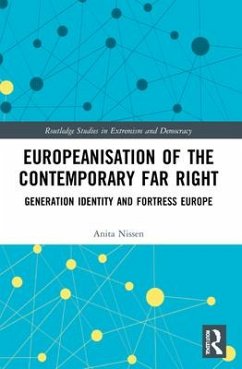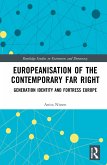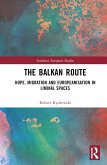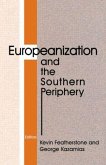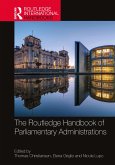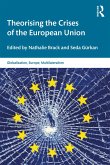Europeanisation of the Contemporary Far Right explores the role of transnational European identity in far-right mobilisation strategies.
Focusing on the national members of two trans-European far-right coalitions - Generation Identity and Fortress Europe - the author explores the extent to which European far-right extra-parliamentary actors Europeanise their mobilisation. Drawing on social movement literature, the book argues that national extra-parliamentary actors' Europeanisation processes are influenced by their political and discursive opportunities and resources. Focusing on the groups' mobilisation during the 'refugee crisis' (2015-2017), the analysis considers the groups' frames, collective action, and coalition-building in the period, finding that the depth of the groups' resources particularly affects their capacity to mobilise.
This book will be of interest to scholars, students, and civil society actors in fields related to the far right, European studies, social movements, and migration.
Focusing on the national members of two trans-European far-right coalitions - Generation Identity and Fortress Europe - the author explores the extent to which European far-right extra-parliamentary actors Europeanise their mobilisation. Drawing on social movement literature, the book argues that national extra-parliamentary actors' Europeanisation processes are influenced by their political and discursive opportunities and resources. Focusing on the groups' mobilisation during the 'refugee crisis' (2015-2017), the analysis considers the groups' frames, collective action, and coalition-building in the period, finding that the depth of the groups' resources particularly affects their capacity to mobilise.
This book will be of interest to scholars, students, and civil society actors in fields related to the far right, European studies, social movements, and migration.
'Though the far right is topical, the bottom-up Europeanization of far-right social movements has been little studied. Nissen (Aalborg Univ., Denmark) seeks to remedy this gap and argues that the refugee crisis of 2015-17 provided an "opportune moment" for far-right social groups to Europeanize, that is, embrace a transnational European identity. Nissen assesses the actual extent of the Europeanization of social movements through a paired comparison of two transnational coalitions, Generation Identity (GI), created in 2012, and Fortress Europe (FE), created in 2016. She analyzes their world views, resources, opportunities, collective frames, collective action, and coalition building. Nissen shows that GI proved much more able to Europeanize than FE and forged an enduring coalition; FE was just an event coalition with a short lifespan due to organizational problems. She argues that these contrasting outcomes occurred because GI was much more homogeneous, especially in its organization and aims, and had more skilled and more experienced leadership. The book is well-grounded in social movement theory and provides an appendix explaining its methods and data collection strategies. Overall, this is an original, well-researched, detailed, and convincing work.'
- A. Siaroff, The University of Lethbridge
"Anita Nissen's study of the reaction of two groups of right-wing parties to the migration crisis of 2015-16 is a good illustration of the challenges that political entrepreneurs face. Nissen focuses on this crisis because it was a highly salient moment in the European debate about multiculturalism and collective identity."
- Survival, Volume 65, Issue 3 (2023)
- A. Siaroff, The University of Lethbridge
"Anita Nissen's study of the reaction of two groups of right-wing parties to the migration crisis of 2015-16 is a good illustration of the challenges that political entrepreneurs face. Nissen focuses on this crisis because it was a highly salient moment in the European debate about multiculturalism and collective identity."
- Survival, Volume 65, Issue 3 (2023)

